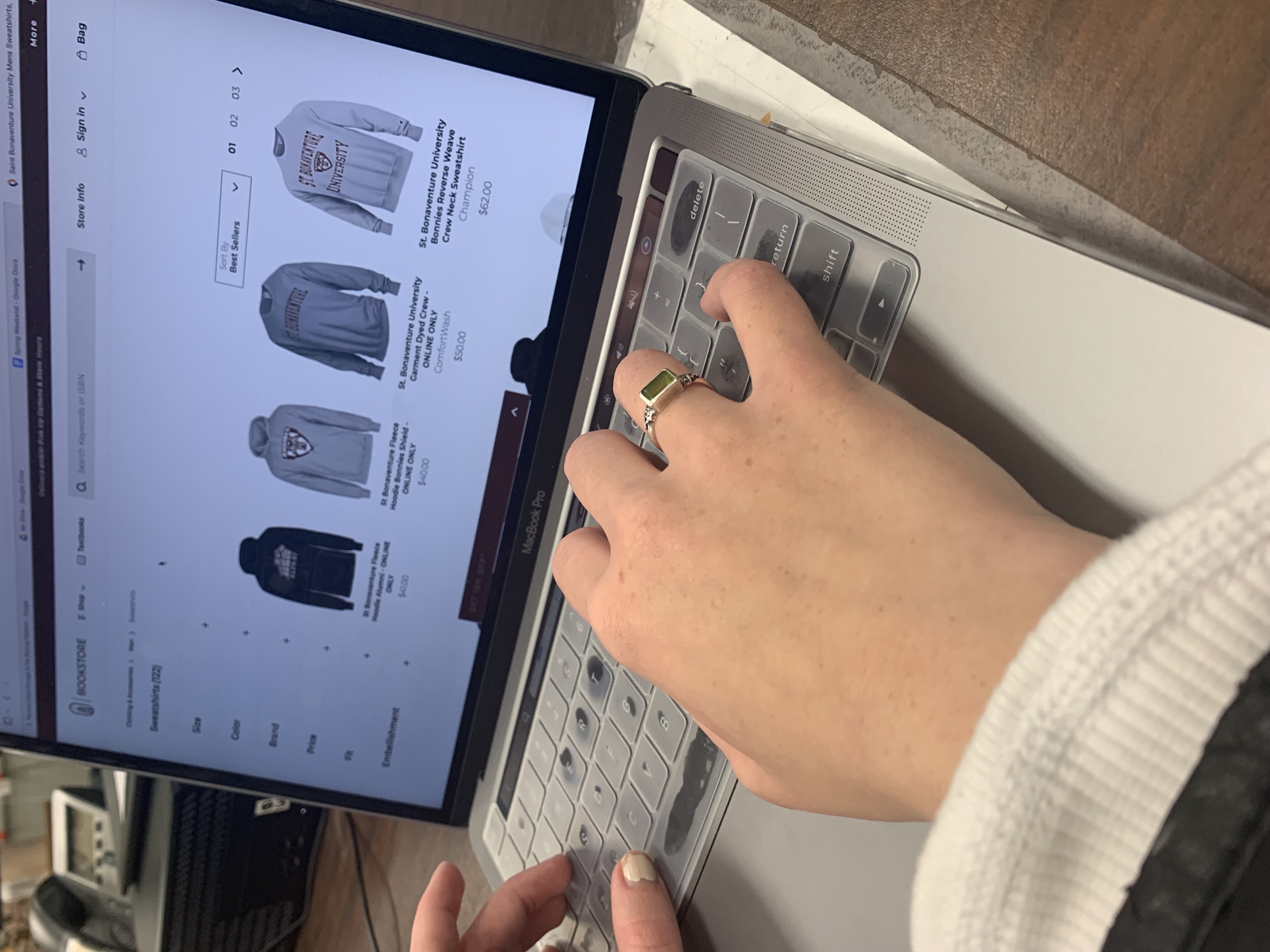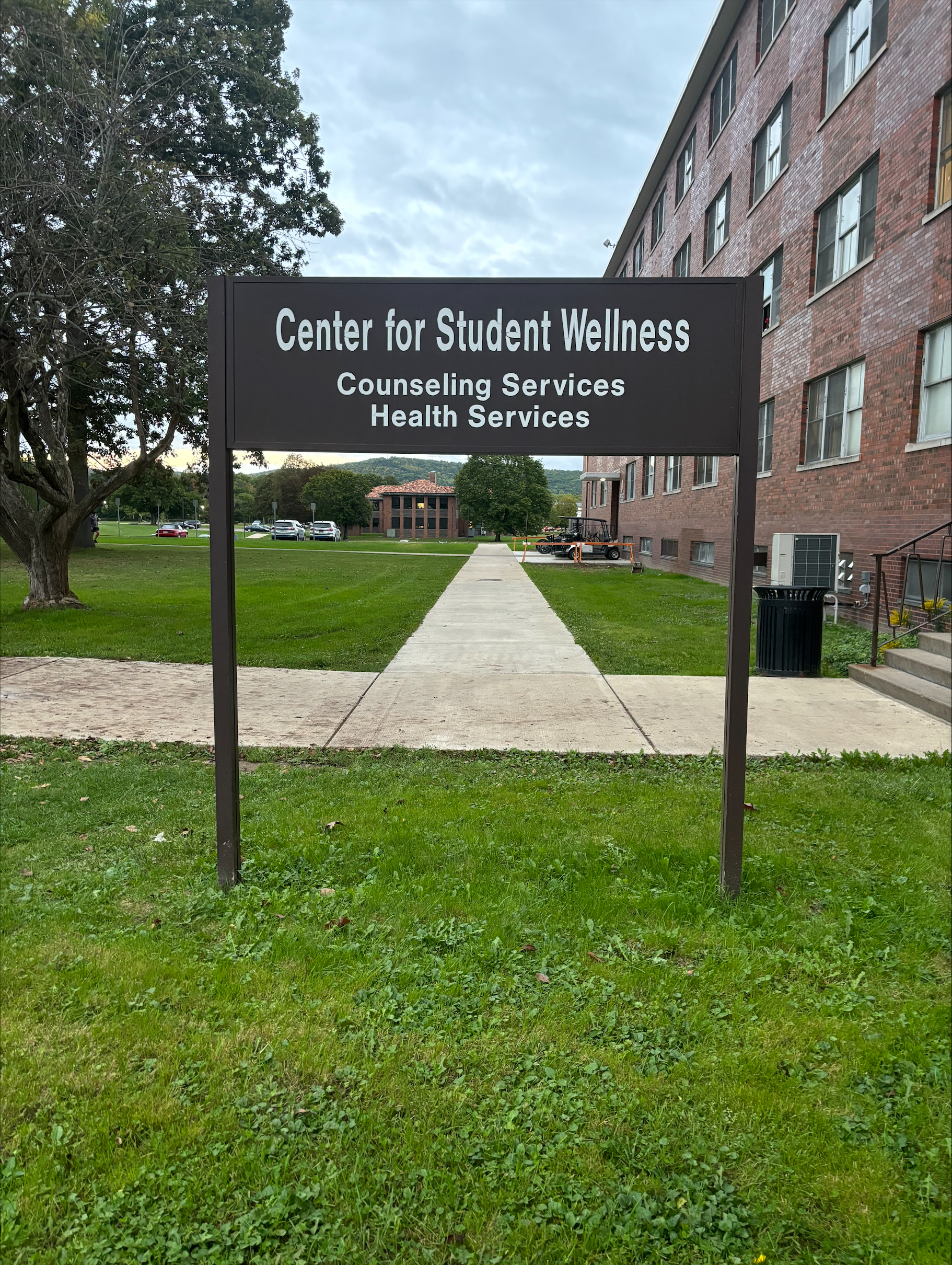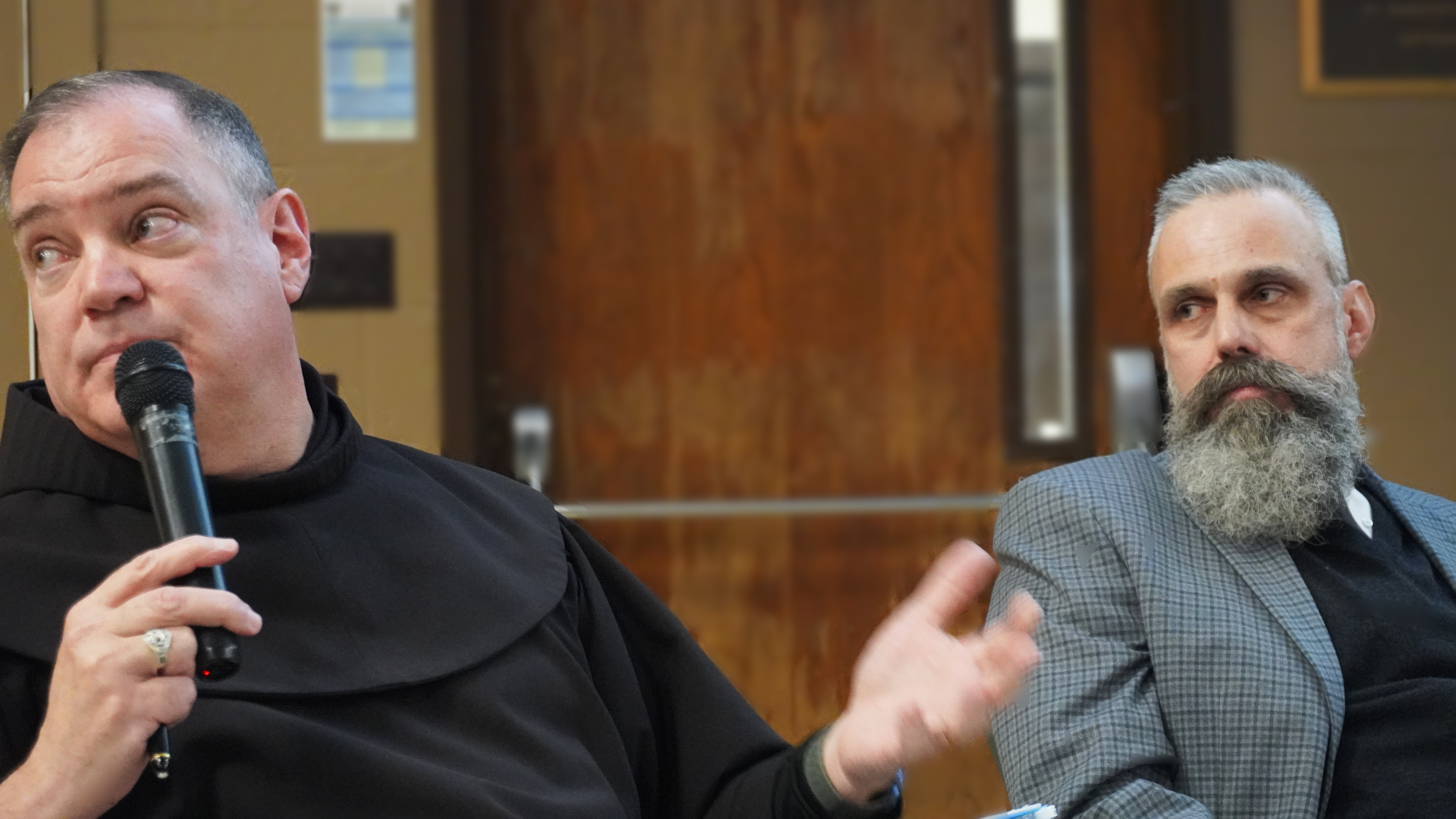BY TYLER EVERETT, CONTRIBUTING WRITER
The bright glare of a computer screen overcame the monochromatic tones of grey in the dimly lit bedroom. Endless scrolling brought joy as webpages revealed the newest fashions. Computer clicks sounded as items landed into virtual carts.
A hobby turned into a necessity for Kayla Arantowicz, a first-year physician assistant program student, due to the COVID-19 pandemic. She said the convenience of purchasing certain items played a role in why she shopped online.
In May 2021, Amazon reported an $8.1 billion profit, a 220% profit increase from the previous year, according to The New York Times. This profit came from the shift in consumer habits during the pandemic. The pandemic confined people to their homes and left them to shop on the web. This came from the statistic that an estimated 2.14 billion people worldwide shopped online in 2021, according to Oberlo, a financial advice website.
At St. Bonaventure University, a rural, private Catholic Franciscan university, two hours south of Buffalo, students and faculty felt the shift’s effects. Students said they experienced the technological changes in shopping online during the pandemic. Other students did not see a change in their habits of shopping and spending.
Bonaventure faculty said they felt the effects of the shift in buying habits as students did. Between the pandemic and increases in online shopping, their spending developed into new habitual patterns.
Todd Palmer, the department of management chair at Bonaventure, provided insight on the spending and online shopping trends surrounding the pandemic.
“I think you see changes in buying habits that pre-date COVID-19, but the pandemic sped things up to where people are now making more online purchases,” he said.
“I imagine we are becoming a more convenient based society, and we now want products quicker and quicker,” Palmer said.
Palmer said that he finds it fascinating how the spending habits of people change due to certain financial circumstances.
Anna Bulszewicz, a journalism lecturer at Bonaventure and director of the campus television station, talked about how the pandemic influenced her shopping habits and money spending.
“I typically spent the majority of my disposable income on travel, and because we have not been able to travel my spending was affected,” she said. Both Instagram and Amazon advertisements led her to buy items on a whim and spend more money.
Bulszewicz said she favors an in-person shopping experience because of the importance of community and human interaction.
Bonaventure students said the pandemic forced them to stay inside and therefore influenced their spending.
Nicolas Ilustre, a senior management major, said the impact of the pandemic affected him and his family.
“Both my parents are physicians, and we are super strict about going out,” he said.
“If one of us gets sick no one can make money or pay the bills,” said Ilustre.
Because of these challenges he used online services like curbside pickup for foods and other essential items.
Andre Gibson, a junior marketing major, shared how the pandemic shaped his shopping experience.
“I went right online with my shopping and stayed away from in-person shops,” Gibson said.
He justified his shift and said, “I tried to keep everyone in my family safe because they are older.”
However, Gibson said he loves being out in public shopping with friends and hopes that as recent events fade life will return to a pre-pandemic setting.
Other students said they did not see a change in their buying habits and favored an in-person shopping experience.
Taylor Biata, a junior education and English major, said she did not favor online shopping for clothing because of sizing issues.
“I don’t like shopping online because I don’t get to try the items on to make sure they fit and look good,” Biata said.
She takes the quality of the item into consideration as well while online shopping.
Biata said once the pandemic fully settles down she will return to in-person shopping at stores.
Daniel Geyer, a senior history and adolescent education major, said he does not mind online shopping but also doesn’t see it as very useful. Geyer said this in reference to the Walmart curbside pickup.
“I understand it helps, but you never know exactly if you are going to get what you selected,” he said.
Students and faculty hold different opinions on what their shopping situations will look like in the future. From wanting to stay in an online setting to desperately needing human interaction, people’s values differed.
“I think we have realized we can do a lot of activities from home, but some aspects are better in person,” said Kayla Arantowicz
everettc20@bonaventure.edu








